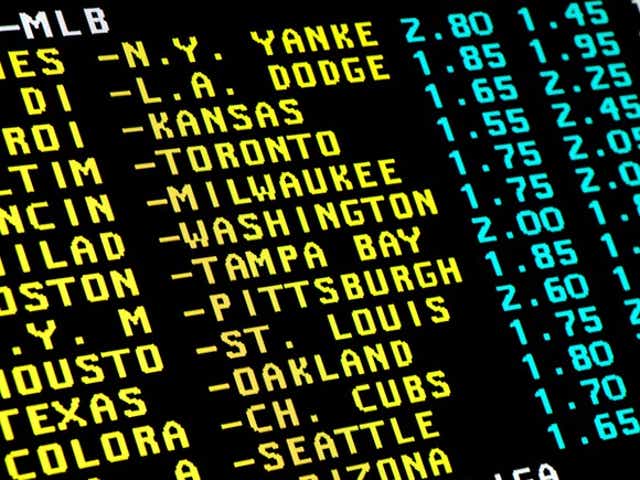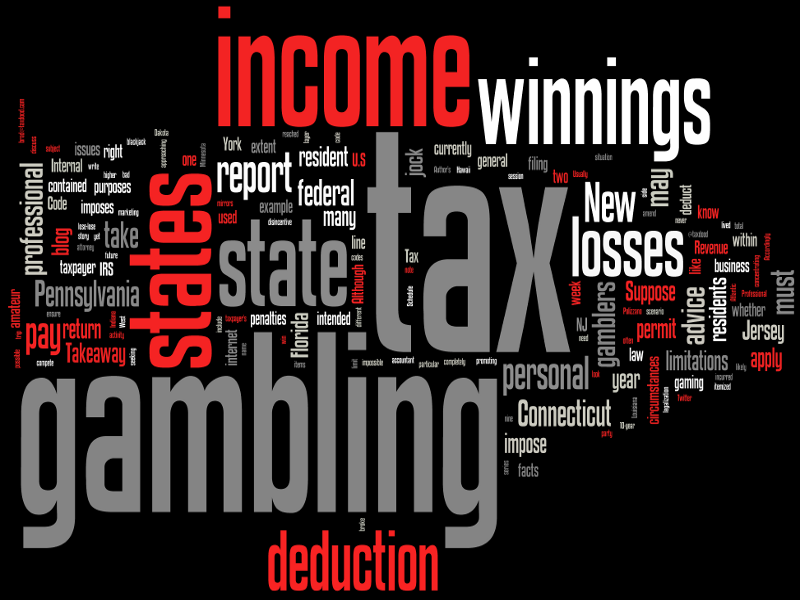Indiana Tax Rate On Gambling Winnings
Posted : admin On 4/12/2022- Indiana Tax Rate On Gambling Winnings 2016
- Indiana Tax Rate On Gambling Winnings Per
- Indiana Tax Rate On Gambling Winnings Calculator
- Indiana Tax Rate On Gambling Winnings Today
- Indiana Tax Rate On Gambling Winnings 2019
Powerball prizes are subject to tax so it is not just a case of looking at the advertised amounts to see how much money you would receive if you won. The rate of withholding depends on how much you win and the jurisdiction in which you buy your ticket. A federal tax is levied on all winners of prizes greater than $5,000, while many of the participating states apply their own tax on top of this. In addition, some locations, such as New York City, levy a local tax on lottery winnings.
You can find out how much tax you might have to pay below. As it is such a complex issue, you should consult a financial expert in the event of a big lottery win so that you're fully aware of your tax obligations.
Federal Taxes on Lottery Winnings
Winnings from sports wagers are considered to be taxable income if you win $600 or more and the win was 300 times more than the amount wagered. If this happens, then taxes should be automatically withheld by whoever you placed the bet with. Your gambling winnings are generally subject to a flat 24% tax. However, for the following sources listed below, gambling winnings over $5,000 will be subject to income tax withholding: Any sweepstakes, lottery, or wagering pool (this can include payments made to the winner (s) of poker tournaments). Gambling winnings are taxable income in Indiana. Full-year Indiana residents pay tax on all of their gambling winnings, including winnings from riverboats and pari-mutuel horse races (even those winnings from out-of-state sources). Nonresidents pay tax to Indiana on gambling winnings from Indiana's riverboats and pari-mutuel horse racing.
Lottery winnings are treated as income in the United States, so your final tax bill depends on how much money you make in total in a year, not just the amount you win in the lottery. The following table shows the federal tax obligations for a Powerball winner filing as a single taxpayer. The rates you pay may differ depending on your individual circumstances.
| Prize | Federal Tax Obligations |
|---|---|
| $0-$600 | No deductions |
| $600.01 - $5,000 | Winnings must be reported on federal income tax form |
| $5,000.01 and above | 24-37%, depending on prize amount |
Federal tax rules are consistent across the U.S. You do not have to pay tax on any prize up to $600, but you must report your winnings to the Internal Revenue Service (IRS) if you win an amount between $600.01 and $5,000. You will be issued a W-2G form to complete with your tax returns.
A federal tax of 24 percent will be taken from all prizes above $5,000 (including the jackpot) before you receive your prize money. You may then be eligible for a refund or have to pay more tax when you file your returns, depending on your total income. If you win the jackpot you will be subject to the top federal tax rate of 37 percent. Players who are not U.S. citizens are subject to an initial federal tax payment of 30 percent rather than 24 percent.
Deductions for Gambling Losses
Playing the lottery is classed as gambling as far as the Internal Revenue Service (IRS) is concerned, which means that you are entitled to a tax deduction on any losses incurred. To file these deductions, you will need to keep an accurate record of your wins and losses, as well as any evidence of them, such as the tickets you bought. You must itemize the deductions on the tax form 1040, obtainable from the IRS website. The losses you deduct cannot exceed your income from all forms of gambling, including but not limited to horse racing, casinos, and raffles.
If you win the jackpot and take the annuity payout, the annual payments will be recorded individually in each tax year, and will count towards your gambling income for that year. This should be taken into consideration when recording wins and losses for tax deduction purposes.
State Taxes
In addition to federal taxes, your Powerball winnings may also be subject to state taxes. It is important to remember that the tax levied on your prize will not only vary by state but also depending on your individual circumstances.
Indiana Tax Rate On Gambling Winnings 2016
The following table shows the rate of withholding for each participating jurisdiction, along with the threshold for when prizes start to be taxed at a state level.
| State Withholding | Jurisdiction | Threshold for State Tax |
|---|---|---|
| No state tax on lottery prizes | California, Florida, New Hampshire, Puerto Rico, South Dakota, Tennessee, Texas, U.S Virgin Islands, Washington State, Wyoming | N/A |
| 2.9% | North Dakota | $5,000 |
| 3.07% | Pennsylvania | $5,000 |
| 3.23% | Indiana | Undisclosed |
| 4% | Colorado, Ohio, Oklahoma, Virginia | $5,000 |
| 4% | Missouri | $600 |
| 4.25% | Michigan | $5,000 |
| 4.95% | Illinois | $1,000 |
| 3-5% | Mississippi | 3% for prizes from $600 to $5,000, 4% for prizes between $5,001 and $10,000, and 5% for prizes above $10,001 |
| 5% | Arizona, Iowa, Kansas, Louisiana, Maine, Massachusetts, Nebraska | $5,000 |
| 5% | Kentucky | Undisclosed |
| 5-8% | New Jersey | 5% for prizes above $10,000 and up to $500,000. 8% for prizes above $500,000 |
| 5.5% | North Carolina | Undisclosed |
| 5.75% | Georgia | $5,000 |
| 5.99% | Rhode Island | $5,000 |
| 6% | New Mexico, Vermont | $5,000 |
| 6.5% | West Virginia | $5,000 |
| 6.6% | Delaware | $5,000 |
| 6.9% | Montana | $5,000 |
| 6.92% | Idaho | Undisclosed |
| 6.99% | Connecticut | $5,000 (or winnings of $600 or more that are at least 300 times the amount of the wager placed) |
| 7% | Arkansas | Undisclosed |
| 7% | South Carolina | $500 |
| 7.25% | Minnesota | Undisclosed |
| 7.65% | Wisconsin | $2,000 |
| 8% | Oregon | $1,500 |
| 8.5% | Washington D.C | $5,000 |
| 8.75% | Maryland | $5,000 |
| 8.82% | New York | $5,000 |
Tax Calculator
Use the tax calculator below to calculate how much of your payout you would be taking home following the respective federal and state taxes that are deducted. Just enter the amount you have won and select your state. Then select if this was the jackpot or not, and if it was then choose whether you took the annuity option or cash lump sum.
Local Taxes
In addition to federal and state taxes, many cities, counties and municipalities in the United States levy a local income tax. This can vary greatly depending on the location, but in all cases it will be applied on top of any other income taxes. New York City, for example, applies a local tax of 3.876 percent in addition to the top state income tax rate of 8.82 percent and the top federal rate of 37 percent.
This means that a New York resident who opts for the cash lump sum payout of Powerball’s starting jackpot will end up with a final payout of roughly $8.4 million, just 42 percent of the advertised $20 million (*During the Coronavirus pandemic, the starting jackpot may be lower than this) prize. Being aware of these rules before you make a prize claim can protect you from the shock of seeing millions of dollars slashed from your prize money.
Taxes for Lottery Pools

If you win a large prize as part of a lottery pool, you are still required to pay taxes on your winnings. Each member of the group will be liable to pay their share of taxes, so everyone will need to report the income when filing their returns. Some states make this easy, as they allow each member of a lottery pool to claim individually through a shared or multiple ownership claim. In these cases the prize money will be paid directly to each member of the pool and the appropriate taxes will be withheld at the point of payment.
It gets slightly more complicated when the entirety of the prize money is paid to one representative, who is then responsible for distributing the winnings to other people. In these cases, anyone receiving a share of the money who is not named as the actual winner will need to complete IRS form 5754 to report the income. This will need to be filled out by every member of the group except the named claimant before the prize money is distributed. Form 5754 must be filed by December 31st of the tax year in which the prize was paid.
In the event of a big prize win, you should contact your state lottery for further guidance about your tax obligations and what you need to do to report the income correctly.
Gambling and the Law®: By Professor I Nelson Rose
The Internal Revenue Code is unkind to winners -- and it doesn't much like losers, either. The federal government taxes gambling winnings at the highest rates allowed. So do the manystates and even cities that impose income taxes on their residents. If you make enough money, in a high-tax state like California or New York, the top tax bracket is about 50 percent. Out ofevery additional dollar you take in, through work or play, governments take 50 cents.

Of course, the tax-collector first has to find out that you have won. Congress and the Internal Revenue Service know gambling is an all-cash business and few winners indeed wouldvoluntarily report their good luck. So, statutes and regulations turn the gambling businesses, casinos, state lotteries, race tracks and even bingo halls, into agents for the IRS.
Big winners are reported to the IRS on a special Form W-2G. If winnings are to be split, as with a lottery pool, winners are reported on a Form 5754.
Indiana Tax Rate On Gambling Winnings Per

Pooling money to buy lottery tickets is common among employees and friends. But whether there are two or 200 in the pool, there is going to be only one winning ticket, and somebody has toturn it in. If you are that someone, make sure you fill out a Form 5754. If your share of a $5 million prize is $1 million, you do not want to be stuck with paying income tax on the entire $5million.
Gambling has become such big business that the IRS receives nearly four million Forms W-2G and 5754 each year. This tells the tax-collectors that nearly four million big winners are outthere, waiting to be taxed.
But the IRS does not always wait. The government wants to make sure it gets paid. What good does a W-2G do if the winner is a foreigner who is going to be in his own foreign country whenApril 15th rolls around?
So, the IRS not only wants reports filed, but often requires that a part of the winnings be withheld. As anyone who has a salary knows, withholding also allows the government to usetaxpayers' money for many months, without having to pay interest.
Indiana Tax Rate On Gambling Winnings Calculator
The withholding rate for nonresident aliens is 30%. Not coincidentally, the tax rate for nonresident aliens is also 30%. So, if a citizen of a foreign country wins $1 million cash at aslot machine in Las Vegas, he will find he is only paid $700,000. The remaining $300,000 is sent to the IRS. The foreign citizen is unlikely to ever file an income tax return, but the IRS getspaid in full anyway.
Citizens of foreign countries are also, of course, usually taxed by their own governments. So some countries have treaties with the U.S., which protects those foreigners from having topay the 30% withholding to the IRS.
U.S. citizens and resident aliens have it both better and worse than nonresident aliens. The withholding rate for gamblers living in American is only 28% (it was 20%, up to1992). Having the IRS take $28,000 out of a jackpot of $100,000 is painful. But, it can hurt even more when tax forms are filled out. There is no 30% maximum tax for people living in the U.S.,and really big winners often end up paying a lot more than 28% or 30%.
The one good news is Nevada casinos were also able to convince the IRS that they could not keep track of players at table games. They said that when a player cashes out for $7,000,they do not know whether he started with $25 or $25,000. So it is actually written into the law that there is no withholding or even reporting of big winnings to the IRS for blackjack,baccarat, craps, roulette or the big-6 wheel.
There is another general IRS rule that says anyone paying anyone else $600 in one year is supposed to file a report. The IRS has been going after casinos and cardrooms that runtournaments, forcing them to file tax reporting forms on grand prize winners. Here the IRS has the very good argument that the operator knows exactly how much a player has paid to enter thetournament and how much the finalists are given.
Indiana Tax Rate On Gambling Winnings Today
Is there anything a winning player can do to lower the bite of the income tax? And what about those who gamble and lose? Which is everybody, occasionally. The law does allow players totake gambling losses off their taxes, but only up to the amounts of their winnings.
Indiana Tax Rate On Gambling Winnings 2019
Of course, if you win, say $135,000, you can take off all gambling losses, up to that amount. If you gambled away, say $65,000, you would only have to pay taxes on the remaining, let'ssee: $135,000 minus $65,000 equals $70,000. The tax on $70,000 is a lot less than the tax on $135,000.
Of course, you have the small problem of proving that you actually lost $65,000. Large winnings may be required to be reported to the IRS; large losses are not.
One former IRS Revenue Officer, who quit government to open his own small tax preparation firm, thought he found the answer. One of his clients won a share in a state lottery: $2.7million, paid out over 20 years in installments of about $135,000, before taxes. The winnings were reported, but the tax return claimed gambling losses of $65,000. The IRS decided that $65,000was a lot to lose, and it sent an agent to conduct an audit.
The tax preparer found a man with an extremely large collection of losing lottery tickets and made a deal: he would borrow 200,000 losing tickets for a month for $500. The losing ticketswere bound in stacks of 100 and shown to the IRS auditor: 45,000 instant scratch tickets, 5,000 other Massachusetts lottery tickets, and 16,000 losing tickets from racetracks throughout NewEngland. So many losing tickets, that it would have been physically impossible for one man to have made these bets. The New York Times called it, 'one of the more visibly inept efforts at taxfraud.' They pleaded guilty eight days after being indicted.

By the way, the man who rented the tickets was not charged. It's not a crime to collect losing lottery tickets, only to use them to try and cheat the IRS.